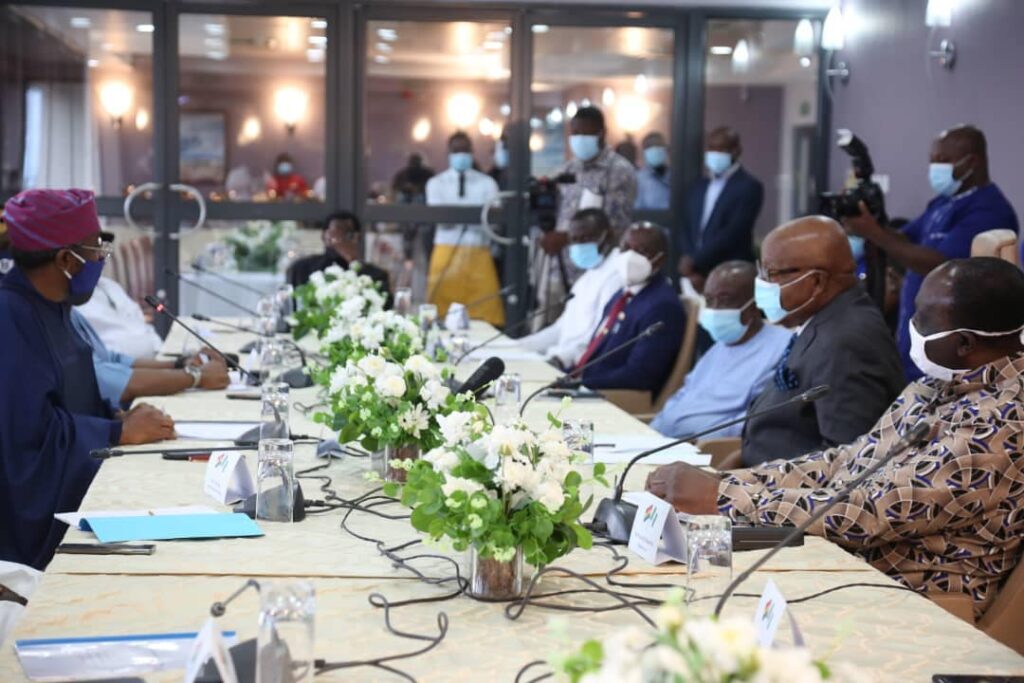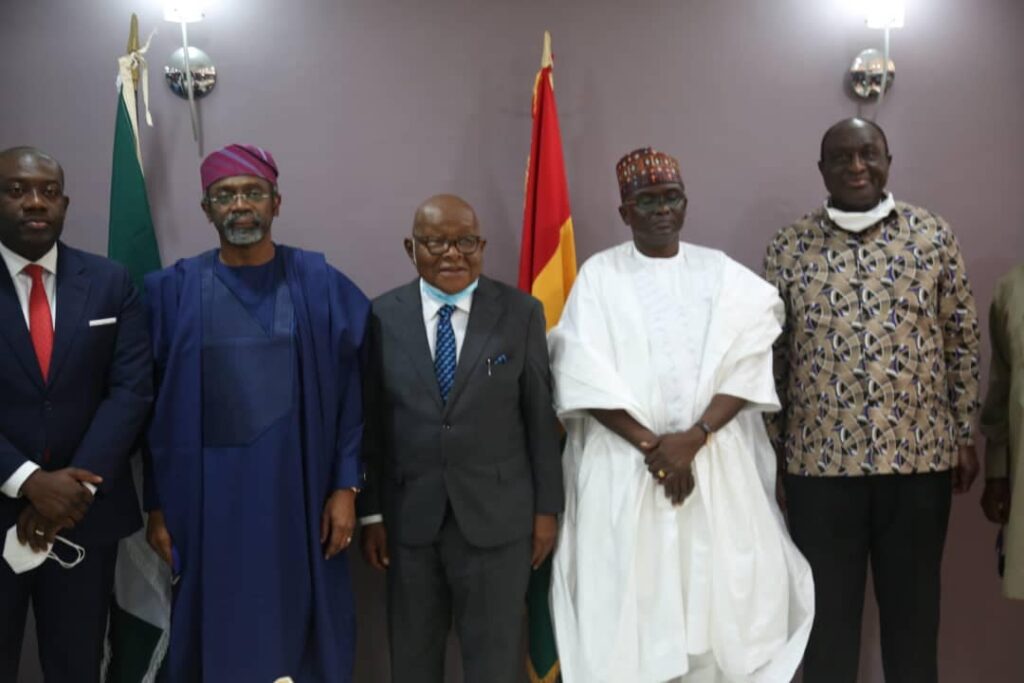Closure of foreigners’ retail shops: How Speakers of Ghana, Nigeria, parliaments want to end it
Ghana and Nigeria are in talks to find an amicable solution to shops closure in two of the country’s capital cities, Accra and Kumasi.
The Speakers of the Ghanaian Parliament and the Nigerian House of Representatives, Professor Aaron Mike Oquaye and Olufemi Gbajabiamila, are currently in talks over the trade brouhaha.
“We intend to find solutions to the challenges brought about as a result of Ghana’s implementation of the Ghana Investment Promotion Centre (GIPC) Act 2013, Act 865.
“Discussions so far have been on how the implementation of Act 865 can be implemented in a manner that will not render Nigerian traders jobless since most of them have had their shops closed and some fines levied at them in accordance with the provisions of Act 865,” this was contained in a presser from Parliament.
According to Professor Oquaye, Ghana’s interest in the matter has been at the front burner in all the discussions held so far.
Nigeria’s Speaker Gbajabiamila in his submissions made reference to the economic, social and political ties that bind Ghana and Nigeria together.

He urged that the two countries to use legislative diplomacy to resolve the issue confronting them.
This, he said, “is most appropriate, since he and Professor Oquaye had on previous occasions, worked together, using the same tools to resolve economic issues not only between the two countries but in the sub-region.”
Ghana’s Trade Minister, Alan Kyeremanteng, who was also present at the meeting explained the context of the GIPC Act and its implementation.
He assured that it was not targeted at any particular national and definitely not Nigerians.

Professor Oquaye also assured Nigeria’s delegation of its good intentions.
The delegation from Nigeria arrived in Ghana on Wednesday following the closure of shops belonging to Nigerians.
Background
There has been a brewing tension between a section of Nigerians living in the country’s capital, Accra and Kumasi.
This follows the closure of over 41 shops belonging to Nigerians by authorities of the Ghana Investment Promotion Centre (GIPC)
Although, the Ghana Investment Promotion Centre Act, 2013 (Act 855) reserves designated markets to Ghanaians for retailing, some Nigerians have opened shops there, to the chagrin of the Ghanaian traders.
This, the Ghanaian traders did not take kindly to, which led to the forceful closure of their counterparts’ shops.
But the vociferous Nigerians resisted the closure and called on leadership of their country to intervene in the ‘unfair’ treatment meted out to them.
Following the accusations, the Federal Minister of Information and Culture of Nigeria, Alhaji Lai Mohammed, released a statement accusing Ghana of ‘harassing its citizens and promoting hostility’.
But Ghana’s Information Minister, Kojo Oppong Nkrumah, however, refuted each of the claims and set the records straight.
READ ALSO: Ghana rejects Nigeria’s accusations of harassing
Ghana Investment Promotion Centre (GIPC) law
Under the new GIPC Act, 2013 (Act 865), all enterprises in the country with foreign participation are required to register with the GIPC.
The minimum capital required for retail business has moved from US$300,000 to $1 million, while foreign investors who participate in joint venture enterprises have to show a minimum capital of $200,000 with wholly-owned foreign enterprises showing a minimum capital of $500,000.
Additionally, Section 28(5) of the Act stipulates that the minimum foreign capital requirements to invest in Ghana, including for engaging in trading, do not apply to the foreign spouse of a citizen of Ghana to the extent that the foreign spouse is or has been married to a citizen of Ghana for a minimum period of five years continuously or holds an indefinite resident permit prior to registration of an enterprise, amongst others.
However, the Nigerian authorities see the development as an affront to ECOWAS protocol on the movement of free goods and services as well as cross-boundary trade between member states.
The trade scuffle between Nigerians and Ghanaians has become a constant struggle between traders of the two countries.
Over 600 foreign-owned shops at the Kwame Nkrumah Circle were locked up by some members of the Ghana Union of Traders (GUTA), in December 2019.
According to the association, the traders failed to produce their business operating permits.
In July, this year, some members of the Association (GUTA) clashed with Nigerian traders operating illegally at the Kwame Nkrumah Circle.
The traders closed down the shops of their Ghanaian counterparts for what they described as the “infiltration of foreigners into Ghana’s retail business.”
Meanwhile, the Nigerian government has given indications that it may head to the ECOWAS Court for redress or throw out Ghanaian traders from Nigerian markets.
YOU MAY ALSO BE INTERESTED IN:
- Ghana Shouldn’t Make Nigerians Pawns For 2020 Elections – Nigerian Minister
- Weak Leadership Responsible For ECOWAS Problems – Akufo-Addo
- Closure Of Nigeria Borders Irresponsible – ECOWAS Court Of Justice
- Tension at Saume as authorities lock up Nigerian shops



